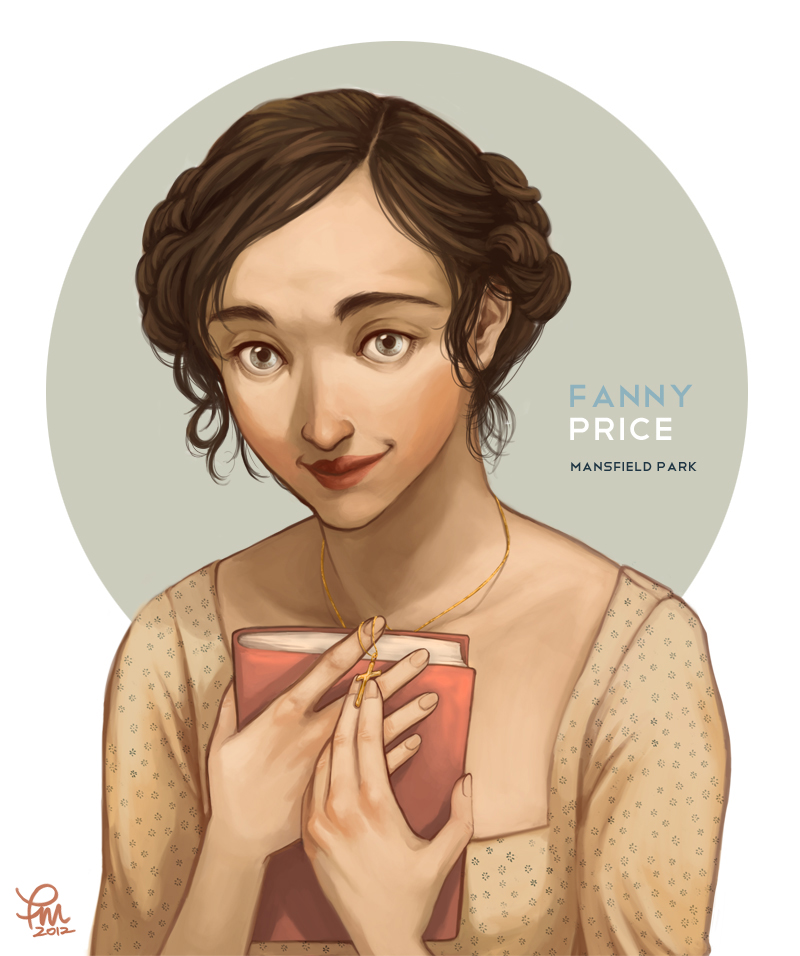
This novel provides the usual pleasures of reading
Jane Austen: Elegant and incisive prose.
I took particular pleasure in her long sentences, often with more than
one dependent clause, and even dependent clauses within dependent clauses,
which remain lucid and thus articulate the relationship between ideas. A plot that is the usual question of finding
a husband for the heroine and for other important female characters, threaded
among complex circles character conflict and family and class relationships. Leading characters that are thoroughly
realized human beings. Jane Austen tends
to keep her distance from her characters –; she presents them a little bit as
if they were in a painting we all admire.
This distance is more striking in this novel than in, say, Pride and Prejudice. Austin does not like all these people she has
created, and freely spends the sharpness of her wit upon them.
The pater familias
of this novel is Sir Thomas Bertram, baronet. His wife, Lady Bertram, is a woman so lazy as
to be almost inanimate. Her younger
sister had married below her class and had several children by a drunken sailor. The baronet takes one of these daughters into
his household at age 8, the protagonist, Fanny Price. Lady Bertram has another sister who is part
of the household by virtue of being married to the clergyman annexed to the baronet’s
estate, Mrs. Norris. Aunt Norris is not exactly a villainess, but she is so
self-centered, self-deceiving, and power-hungry that she harms the lives of everyone
around her especially Fanny. She never
lets Fanny forget she is a poor relation although, or because, Mrs. Norris is
in a similar position.
Two issues interested me in this rereading of the novel:
the limitations of Fanny as a heroine, and telling rather than showing.
Fanny is no Elizabeth Bennett. Though she is smart and eventually grows up
pretty, Fanny is a problematic because she is a boring little prig. I have heard her compared to the treacle-sweet
heroine of Bleak House. There is considerable
tension in this novel between what we might see as moderate sexual license versus
an attitude of intense and fearful defense of an appearance of chastity and
fidelity. All this in an society where
the threat of scandal could quickly ruin a woman's life. For example, while the baronet is away
tending to his estates in Antigua, the young people stage a somewhat
flirtatious and suggestive theatrical. Fanny
is stubbornly opposed to such goings-on, which earns her points with a
clergyman cousin and with her uncle when he returns. But does it earn points with the author or
the reader?
To put this in context, note that Jane Austen's
family frequently put on theatricals, usually restoration comedies, when she
was growing up in which she almost certainly performed. Bear in mind also the recent republication of
Austin's early novel Lady Susan, in which the heroine is a sexual predator, and
that Jane Austen's aunt almost certainly derived what little financial security
she enjoyed from being the mistress of Warren Hastings.
Fanny has integrity, intelligence, and stubbornness
and sticks to her guns when various family members put pressure on her to marry
a man whom she perceives to be wrong for her.
She also passingly brings up the morality of the slave trade with her
uncle, albeit inconclusively. As far as
I know that is the only mention of the slavery in Austin's work.
In creative writing classes and stereotyped advice to
writers you often hear the formula, "show don't tell.” I note with interest that the final three
chapters of Mansfield Park, which very successfully tie up numerous plot lines
and consummate or foresee various marriages, are entirely told. Of course, we know all the characters pretty
well by then so we don't need "showing" as an exposition of character. But still, it is a resounding example
contrary to the "show don't tell" formula.
